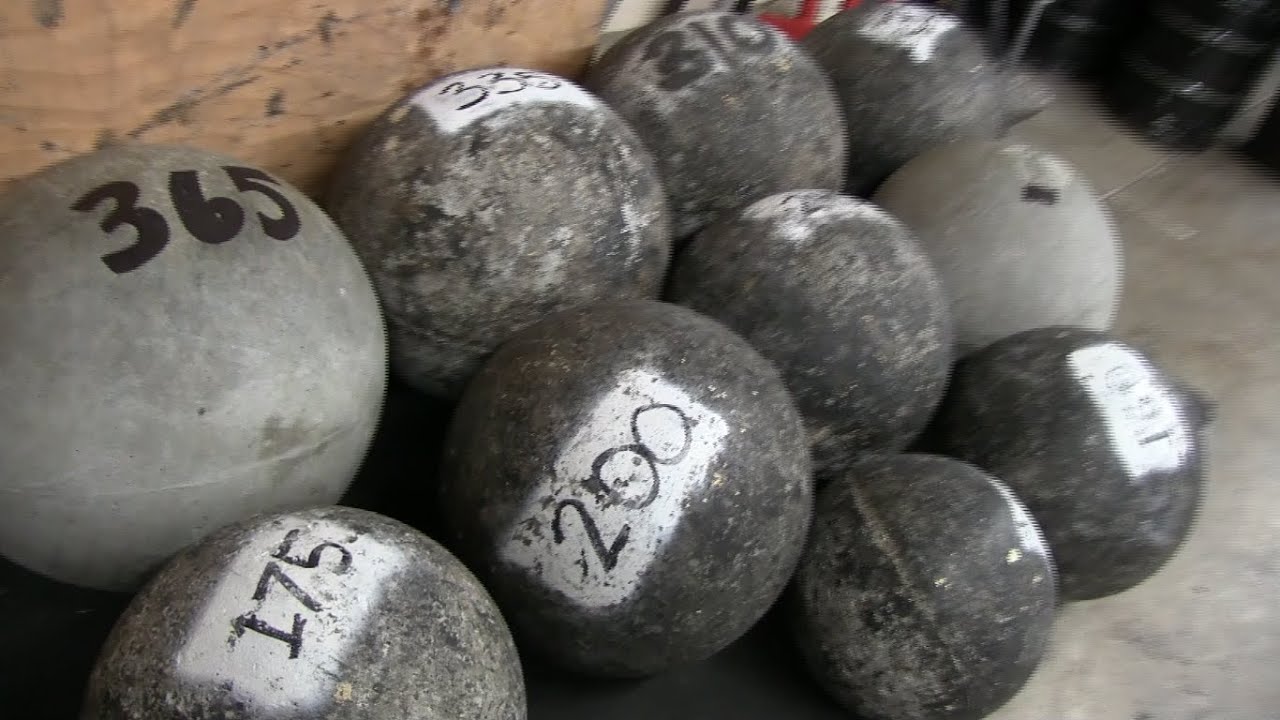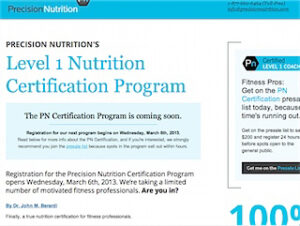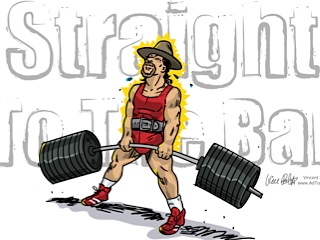
World Champion deadlifter Christine Neff (formerly Rovnak) is one of the few women in the world who can deadlift more than 500 pounds. She has been powerlifting for 11 years and competing on and off for nine. She holds world, national and state powerlifting records in various weightlifting classes in various federations.
And, I’m proud to say, she’s my sister.

Stats
Age: 27
Height/weight: 5’11” 192 pounds
Hometown: Coeur d’Alene, ID
Has competed with: WABDL, APA, APF, USAPL, AAU, USPF
Stats: World record 502.6 pound deadlift in 2007 for WABDL in the open women’s 198 pound class, signed by Gus Rethwisch.
Bench 315 pounds at 181 assisted, 275 pounds at 181 raw; Squat 440#. For more details on competition history, see bottom.
Did you set out to become a world record holder in this lift?
Not at all. The fact that I hold the world record is still surreal to me. I am one of a few women in the world pulling over 500#, yet I am always surprised when people walk up to me after a competition with compliments and handshakes.
Did this lift come easy to you? How long until you felt competent?
The deadlift HAS always come easier to me than the other lifts. Compared to bench pressing, I have had to train very little to get where I am now. Unfortunately, knowing this has allowed me to be lazy and (give me) the feeling that achievement is constantly just out of my grasp.
Is the deadlift your favorite lift? If so, was it always?
Absolutely. Deadlifting is, in some circles, considered to be the bluecollar lift of the powerlifting world.
During the beginning stages of my competing, I did not deadlift. People are rarely seen training this lift, and a normal gym setting can be an embarrassing place to do it, especially to someone who doesn’t know what they are doing. I was somewhat influenced to try it after watching several very strong women pull at the end of our competitions.
It is not as popular, nor can it be as easily influenced by the use of supportive gear. Take benchpressing for example. In the 80s and early 90s men benching in the 500-600 pound range were elite. Somewhere along the line, someone got the idea to change the single-ply bench shirt into scientific armor. We went from having denim then double-denim, to lifters wearing shirts 3x too small for them with 4 inches of stitching across their chest and a split down the back. I read an interview from a girl who benched just below 400 pounds openly admitting that she gets at least half of that from her shirt. Now I watch amateur lifters in the gym spending money on shirts before they even have their true form down, and lifters shattering their forearms in competition because they were not built to support upwards of 800-1000#.
There is a time and place for everything, and whether someone lifts equipped or not is their decision. In many competitions, I too wear a shirt (though drawing the line at a double poly), but feel the deadlift is more raw in form. Deadlift suits cannot add 100# to your pull, and training without a partner is possible. At a competition everyone shows up to watch the bench, but the Lifters are the ones left watching at the end.
Describe your training, and how it differs between on and off-season.
I am a strong believer that heavy lifting is mostly done in the mind. If you allow your body to soften up during “offseason”, you take the chance of coming back weaker and less enthusiastic than you would have been if you’d stayed disciplined and focused.
Training the deadlift is different than the other lifts in the sense that overtraining is very easy to do, and for that reason, I do actual deadlifts only leading up to a competition or occasionally on a back night at moderately heavy weights.
If I deadlift every week, I find my body and mind becoming bored. Instead, I focus on working my hips on the sled or by doing squats/hack squats. My grip leaves something to be desired, so I also do forearms and try to keep the rest of my body tight.
About 6-8 weeks from a competition, I will begin doing heavy deadlifts twice a week. On the first night, I use the same form as I would in competition. On the second (about 3 days later), I like to stand on a platform or plates and do hyperextensions. Both nights I do sets 6″ above and 6″ below the knee from the Smith Machine with weights I normally wouldn’t be able to pick off the ground with the intent to work the sticking points and refining my form. Additionally, I move my focus away from arm exercises and anything not directly tied to the deadlift. The last week before competition, I stop deadlifting altogether and give my body time to rest.
Does your philosophical approach to deadlifting differ between the on and off-season?
I am ALWAYS working to shatter my previous records in competition, but I seem to do worse if I train the deadlift every week. My focus is pointed more at keeping everything strong all the time and training the deadlift primarily leading up to a competition.
What goes through your head while you’re executing a deadlift?
Clear your head and walk up to the bar like you hate it. Ignore the crowd, and don’t look down when you place your hands. Take a deep breath in, bend your knees, and set your hands. Push down with your legs and roll your shoulders while exhaling, pull with all your might. Then try not to pass out.
What are the biggest mistakes you see others make in their deadlifts?
Form is a real killer in the deadlift. Some people are gifted with bull muscle strength and have the ability to pull up great amounts with their knees locked and backs bent. Eventually, however, the increasing amount of weight can cripple the spine. Having a firm stance and utilizing the large muscle groups in the legs and pelvis will allow for steady improvement and keep a body healthier in the long run.
Are the mistakes generally the same between regular lifters and competitors?
I think competitors are less likely to have sloppy form because they can appreciate the lift from a judging point of view. However, there are always a few, both competitors and regular lifters, more concerned about showing off than the gradual climb to core strength. This probably has more to do with individual personality, but does not improve ability to lift in any way and annoys the rest of us in the gym.
What was the best piece of advice you ever got on your deadlift?
My husband Roger, who has taught me almost everything I’ve talked about so far, told me to relax and stop thinking so much.
I had to learn the hard way that nagging myself to death to do better can be sabotage.
You cannot become discouraged when a particular night in the gym yields less weight than it did the night or week before. Daily activities, diet, and frame of mind directly affect the ability to lift and the more you think about how badly you are doing, the worse you do.
An example of battling my expectations happened just before I broke the world record. I had been out of lifting for too long and became easily discouraged. When I wasn’t rapidly progressing, I beat my self up mentally. It had gotten so bad that the last session in the gym before the competition I couldn’t even budge 465# off the floor, which was 20# lighter than I’d been lifting the week before!
After getting a firm talking to and taking a week off, the day of competition came. I kept my head clear and allowed my training to take over…then pulled the best numbers of my life.
Adrenaline can do wonders, so don’t worry if you haven’t pulled what you want to in practice. Training in a family gym, probably listening to music that is not your choice, and being stared at by parents or teenagers that have no idea what you are doing is much different than standing under the lights on a stage covered in sweat and chalk looking out over a crowd.
Give us a bit of background about you as a competitor.
I had very little opportunity to play sports in high school, but have always had a fanatical drive. Being 6′ tall, I was the largest girl in my class and convinced I wanted to be a model. Unfortunately, I felt I was built more like a football player than a model, and the tiny girls surrounding me didn’t help. I would get up very early in the morning to run before classes, then finish the day in the school gym before work trying to get stick thin. It was only after I entered college and met my future husband that I got into serious lifting. At the time, I thought bodybuilders were gross, and was afraid to lift real weights for fear of getting manly and muscular. Roger, a 2-time Olympic World Team wrestler, had been lifting and competing all his life. He showed me proper form and encouraged me to work out, but never pushed me to lift heavy. About 8 months into our relationship, he invited me to watch him at a powerlifting meet. I had never seen one before, and made the assumption, as many do, that I would be watching a bodybuilding show. Several hours into it, Roger asked if I would be interested in trying it out since I was having such a good time. Embarrassed and self-conscious, I refused and told him it wasn’t for me. For some reason or another, he took that as a yes and secretly entered me into the novice teenage bench competition. I was so scared I cried. When the time came for me to get onto stage, I walked up, turned my back to the crowd and proceeded to bench press the bar and 15# on each side. Oddly enough, there were no other girls in my division that day and I took home the trophy for a 75# bench press. There on out, I was hooked.
My most embarrassing moment of lifting came a year or two later in Seattle. The competition was in a hotel conference room, atop a stage overlooking 2-300 people. Anthony Clark, who was still alive at the time, had a t-shirt stand set up in the back of the room along with several other venders. All in all, a relatively large event. Several lifters were there that day, but I was among the youngest and least experienced. I had forgotten to bring a singlet, so I bought one off the back table and got ready for my lift. Those of us competing sat in the front rows below the stage, and when you were about 3 people out, you’d stand at the bottom of the steps and wait your turn. I was standing there in my brand new singlet, and when the judge called my name, Roger took my t-shirt and led me to the bench. The only thing I had on under the singlet was my sports bra, and I didn’t know that was against regulation rules. The judge took one look at me, looked at Roger, and asked very politely into the microphone if I could go back off stage and put my clothes on. The competition was put on momentary hold while everyone in the room watched me walk down and crawl back into my shirt.
In hindsight, I am probably the only person that remembers that incident, but I never made that mistake again!
Who are athletes you look up to and why? Have any specifically influenced your deadlift?
I respect a person who remains humble and clears their own path, who despite of money made in their sport, gets up every day and keeps going. They are the ones that influence me, deadlifting or otherwise.
I respect Michael Jordan for talking kindly of others when he himself ruled the world.
I respect Becca Swanson for breaking social norms for women and deadlifting more than most men.
I respect the dinosaurs that trained with only a belt and chalk, who weren’t afraid to bleed from their eyes, and whose records remain to this day.
Have you met your goals for this lift? What’s your plan for what it means in your future?
My goal is to lift 600#. Four years ago, if asked the same thing, I would have said I wanted to deadlift 500#, but every time I reach that mark, it moves up. The hungry feeling of dissatisfaction is probably something all competitors feel when setting goals for themselves, and is what separates them from the pack.
More stats
Note earlier records were under maiden name Rovnak
World Deadlift Record WABDL 485.0# 198 open women (also set that in Junior Women division and holds the state and national title)
WABDL National bench press record 305.2# 181 junior women
WABDL National DL record 457.2# 181 open women
USAPL State bench record 275# 198 lb open women
USAPL State DL record 450# 198 open women
APF National BP & DL record in 165 junior women division
Sisters Kat Ricker and Christine Neff












0 Comments